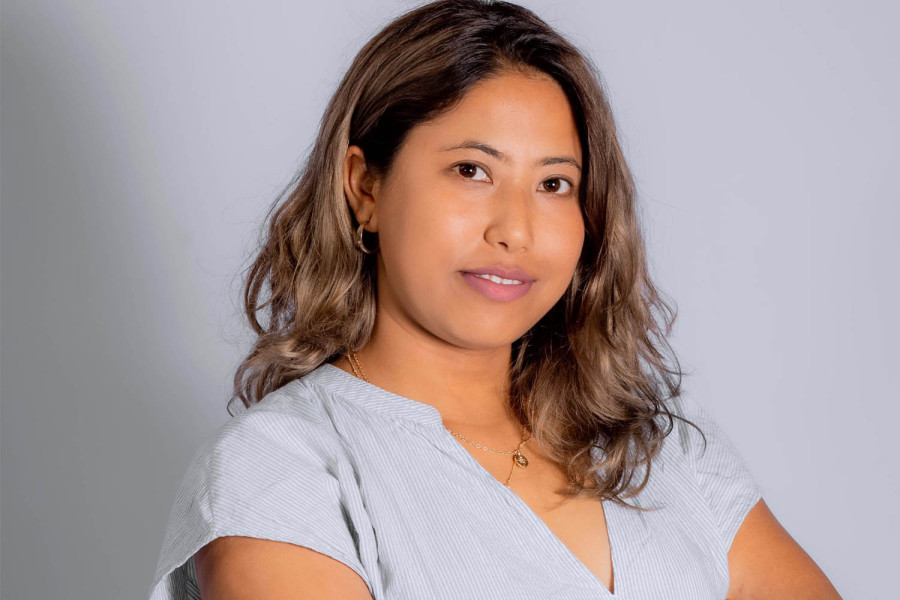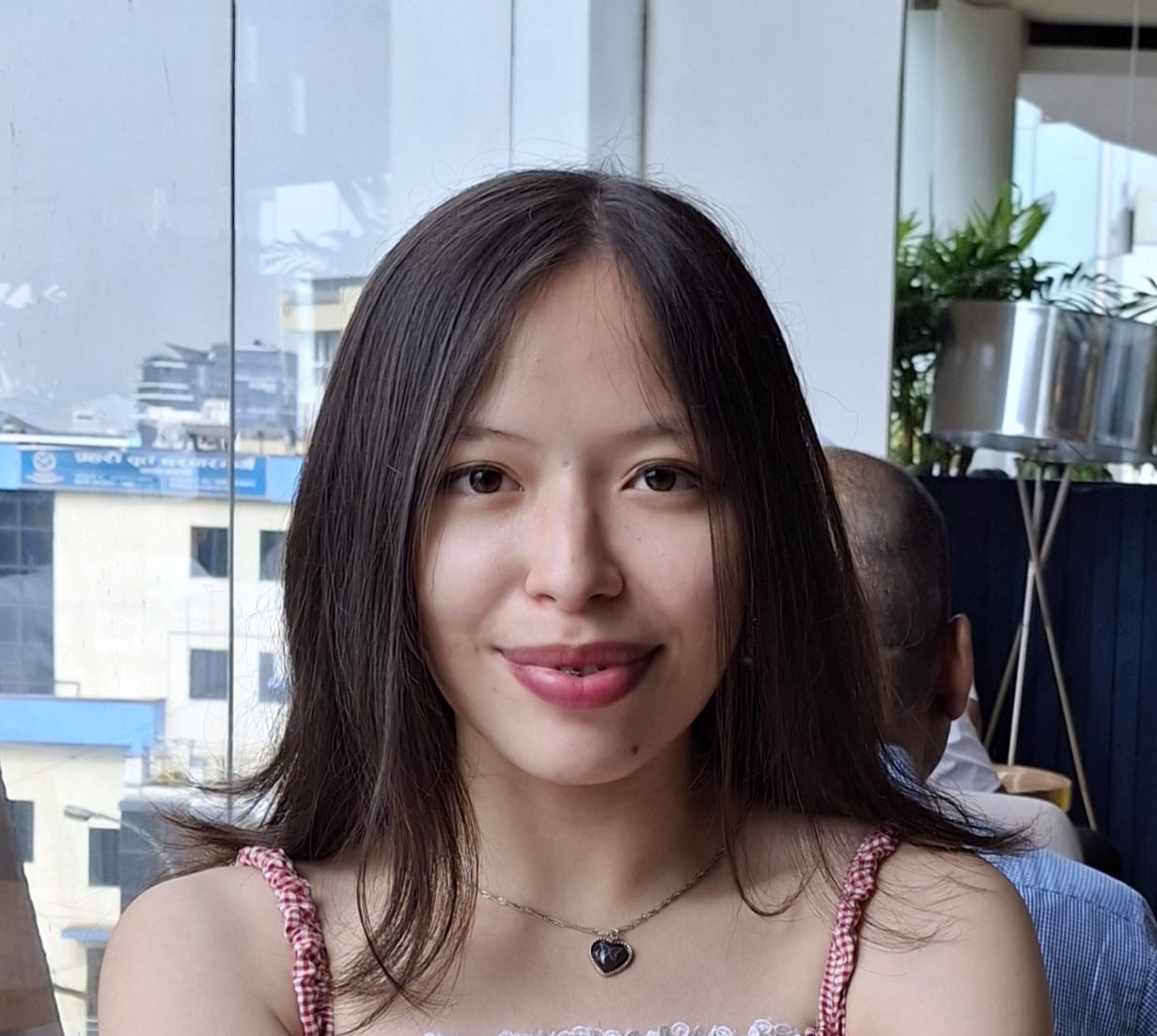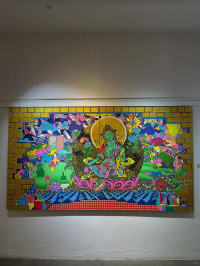Culture & Lifestyle
Breaking taboos
Pushpa Joshi discusses her evolution from a defiant young woman who challenged traditions into a dedicated advocate for sexual and reproductive health rights.
Manushree Mahat
Pushpa Joshi has always been a bit of a rebel. She vehemently disagreed with the practice of menstruation impurity in her household and did everything to diminish those outdated values from her home. She mischievously grins as she tells me about the number of times she gave grief to her mother by outwardly going against everything that traditions had taught her until that point. “If my mother asked me not to touch something in the kitchen, I would go around touching everything just to make my point,” says Joshi.
Joshi’s mother no longer believes in those practices. Joshi doesn't fault her for believing in them in the first place. Letting go of these deeply embedded practices takes time. Because of Joshi’s actions, her youngest sister does not have to stay away from the kitchens during her periods.
Her penchant for deconstructing taboo topics led her to the path of advocacy. For the past decade, she has been actively involved in campaigning for sexual and reproductive health rights (SRHR). She co-founded Youth led Sexual and Reproductive Health Rights Advocacy Nepal (YoSHAN), and is a vice-chair at LOOM Nepal, a feminist organisation working towards women’s rights. She is also the president of Social Changemakers and Innovators (SOCHAI), a women-led nonprofit aimed at improving the quality of life through nutrition and health.
Joshi became involved in the reproductive rights committee when she was just thirteen. Her eldest sister, who worked in Family Planning Association Nepal (FPAN), would attend one of their meetings every Saturday. Joshi, curious about her sister's whereabouts, decided to join in on one of the meetings, to find out that it was Youth Information Forum, a space where the youth engaged in insightful discussion about topics thought too taboo in the society.
Joshi was rendered both shocked and fascinated as she heard her seniors discuss sex and contraceptives. Eventually, she found herself immersed in this non-judgemental community that became the base for her own future activism. She soon began hosting programmes and awareness-based street dramas there.
After completing her Plus Two in science, Joshi trained to teach sexual and reproductive health to factory workers. She realised that lack of awareness was the perpetrator behind the poor reproductive health of factory workers. This inspired her to venture into reproductive rights advocacy. She then taught women about menstruation, sanitary care, use of contraceptives and reproductive rights. This was 2011, a time when the internet was still in its infancy. Training and workshops played a vital role in advancing sex education.
Joshi was also involved in training health professionals regarding safe discussions of abortion with patients. She recalls the lack of sensitivity regarding approaching the discussion of abortion to be a major problem within the healthcare community as well.
“I would hear stories about health care workers insulting their patients for getting abortions,” says Joshi.
After completing her bachelor’s in social work from Purbanchal University, she started working as an intern at LOOM. This was when she realised that advocating for SRHR demands a holistic approach. Engaging in community-based activism opened her to experiences that widened her perspective.

She already enjoyed travelling—but working at LOOM deepened her love for it. She travelled to a number of places for work. Out of these, she mentions her work at Udaipur as being particularly memorable. The LOOM team organised ‘Young Women Meet’ sessions where training regarding sexual health would be facilitated from the perspective of health and human rights. She reveals that some of the girls still call her, asking if she’ll come back to Udaipur.
“One of the girls I worked with called me some time ago to share that she had negotiated with her parents about marrying only after she turned 20 with a guy of her choice. At a time when early and arranged marriage was still very common, this was a big deal. Knowing that I had impacted the lives of these girls fills me with joy,” says Joshi.
When she started at LOOM, she was just an intern, but she left while working as the programme officer in 2019. Four years later, she joined LOOM again as a vice chairperson.
While she was still working at LOOM, Joshi co-founded YoSHAN. There, she is actively involved in training youths to engage in local-level policy advocacy regarding reproductive and sexual health rights, with primary focus on safe abortion rights. YoSHAN is also involved in community-based awareness, and advocacy through social media platforms.
When Joshi is not working, she loves watching films. In 2021, when Kipalaya Productions opened their ‘Women Make Films’ workshop, she decided to sign up for it, and to her delight, she got in. Her debut documentary, ‘Lalita’, directed alongside Anjila Chaudhary, focused on the life of a sex worker. It received widespread praise and won the ‘Best Film by a Woman Filmmaker’ award at the National Human Rights Film Festival 2021.
Encouraged to hone her skills in filmmaking even more, Joshi began working on her second documentary with Sapana Belbase soon after. ‘Veiled’, also a documentary, conveyed the significance of societal values and structures in perpetuating child marriages. Joshi wanted to highlight that although laws and policymaking are crucial to ending child marriages, the deeply embedded societal values that believe sexual desires to be taboo must be deconstructed to make a real difference.
“Our society still thinks that learning about our bodies and wanting to have sex is considered wrong. To stop harmful practices like child marriage, we need to start by raising awareness that sex and reproductive rights are nothing out of the ordinary,” says Joshi.
Her third documentary film, produced under the Tony Hagen Grant of Kathmandu International Mountain Film Festival (KIMFF), is now in its post-production phase.
Joshi believes that advocating involves deconstructing many social stigmas and values instilled at a young age. There were times when she felt conflicted trying to come to terms with the things she was taught were wrong in her childhood. She challenged herself to learn more and educate herself.
“We need to unlearn some of the harmful beliefs deep-rooted within us. It’s how one becomes more empathetic,” says Joshi.




 14.24°C Kathmandu
14.24°C Kathmandu



.jpg&w=200&height=120)











